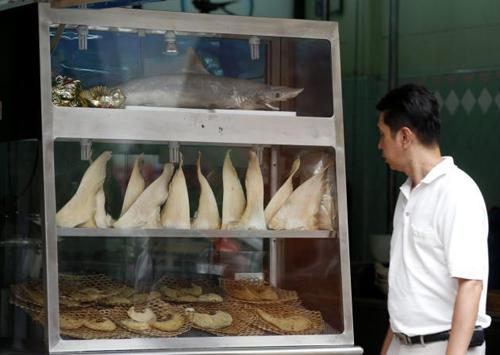Phuket Gazette National News: Thailand may oppose protection of sharks, manta rays

PHUKET MEDIA WATCH
– Thailand news selected by Gazette editors for Phuket’s international communityThailand set to oppose protection of sharks and manta rays
Phuket Gazette / The Nation
PHUKET: Thailand will be juggling several hot-potato wildlife issues as it hosts the 16th Conference of the Parties to CITES, the ‘Convention on International Trade in Endangered Species of Wild Fauna and Flora’, which starts on Sunday and runs through March 14 in Bangkok.
While Thailand struggles to defend its trade in ivory and crocodile skin, the CITES meeting will bring proposals to protect seven species of sharks and manta rays.
“If the proposal is accepted, the breeding of some ornamental fish will be affected,” says Theerapat Prayurasiddhi, deputy chief of the National Parks, Wildlife and Plant Conservation Department.
A farm-bred short-tail stingray can fetch up to 30,000 baht.
Fisheries Department director-general Wimol Jantrarotai says Thailand would oppose the measure on manta rays. “The protection will hurt us. We have imported breeder fish from Latin America and exported our bred fishes to the Middle East,” he said.
Regarding sharks, Wimol expressed doubts about a report that Thailand was among the top shark-catching countries.
The Pew Environmental Group ranks Thailand in 12th place, based on reported shark catches between 2000 and 2009. Thailand reported catching 9,025 tons of sharks, rays and chimaeras to the UN Food and Agriculture Organisation in 2010.
PHUKET: Thailand will be juggling several hot-potato wildlife issues as it hosts the 16th Conference of the Parties to CITES, the ‘Convention on International Trade in Endangered Species of Wild Fauna and Flora’, which starts on Sunday and runs through March 14 in Bangkok.
While Thailand struggles to defend its trade in ivory and crocodile skin, the CITES meeting will bring proposals to protect seven species of sharks and manta rays.
“If the proposal is accepted, the breeding of some ornamental fish will be affected,” says Theerapat Prayurasiddhi, deputy chief of the National Parks, Wildlife and Plant Conservation Department.
A farm-bred short-tail stingray can fetch up to 30,000 baht.
Fisheries Department director-general Wimol Jantrarotai says Thailand would oppose the measure on manta rays. “The protection will hurt us. We have imported breeder fish from Latin America and exported our bred fishes to the Middle East,” he said.
Regarding sharks, Wimol expressed doubts about a report that Thailand was among the top shark-catching countries.
The Pew Environmental Group ranks Thailand in 12th place, based on reported shark catches between 2000 and 2009. Thailand reported catching 9,025 tons of sharks, rays and chimaeras to the UN Food and Agriculture Organisation in 2010.
“I think there are some inaccuracies,” Wimol said, explaining that the sharks might have been caught in fishing nets by accident.
Thai laws already protect the great white and elephant sharks.
The shark trade is fuelled by demand for shark-fin soup, and while Hong Kong is the largest market, shark-fin soup is a delicacy found in many restaurants in Thailand.
Thai laws already protect the great white and elephant sharks.
The shark trade is fuelled by demand for shark-fin soup, and while Hong Kong is the largest market, shark-fin soup is a delicacy found in many restaurants in Thailand.
— Phuket Gazette Editors
Latest Thailand News
Follow The Thaiger on Google News:
























